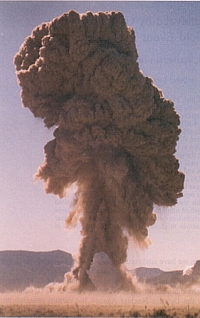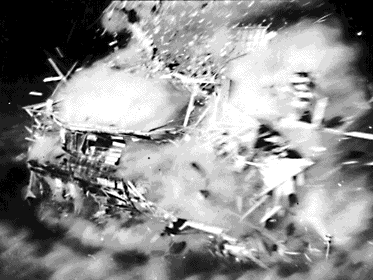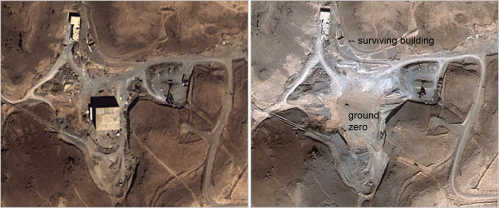The Iranian challenge
By Trita Parsi, The Nation, November 19, 2007
Iran will be the top foreign policy challenge for the United States in the coming years. The Bush Administration’s policy (insistence on zero enrichment of uranium, regime change and isolation of Iran) and the policy of the radicals around President Mahmoud Ahmadinejad (unlimited civilian nuclear capability, selective inspections and replacing the United States as the region’s dominant power) have set the two countries on a collision course. Yet the mere retirement of George W. Bush’s neocons or Ahmadinejad’s radicals may not be sufficient to avoid the disaster of war.
The ill-informed foreign policy debate on Iran contributes to a paradigm of enmity between the United States and Iran, which limits the foreign policy options of future US administrations to various forms of confrontation while excluding more constructive approaches. These policies of collision are in no small part born of the erroneous assumptions we adopted about Iran back in the days when we could afford to ignore that country. But as America sinks deeper into the Iraqi quicksand, remaining in the dark about the realities of Iran and the actual policies of its decision-makers is no longer an option.
A successful policy on Iran must begin by reassessing some basic assumptions:
1. Iran is ripe for regime change.
Not true. Although the ruling clergy in Iran are very unpopular, they are not going anywhere anytime soon. [complete article]
— At a moment when numerous contrasts and comparisons are being drawn between Iran and Pakistan, this is one among many that deserves underlining: non-nuclear Iran is more politically stable than nuclear Pakistan.
Noun + verb + 9/11 + Iran = Democrats’ defeat?
By Frank Rich, New York Times, November 4, 2007
… there is nonetheless a method to all the mad threats of war coming out of the White House. While the saber- rattling is reckless as foreign policy, it’s a proven winner as election-year Republican campaign strategy. The real point may be less to intimidate Iranians than to frighten Americans. Fear, the only remaining card this administration still knows how to play, may once more give a seemingly spent G.O.P. a crack at the White House in 2008.
Whatever happens in or to Iran, the American public will be carpet-bombed by apocalyptic propaganda for the 12 months to come. Mr. Bush has nothing to lose by once again using the specter of war to pillory the Democrats as soft on national security. The question for the Democrats is whether they’ll walk once more into this trap.
You’d think the same tired tactics wouldn’t work again after Iraq, a debacle now soundly rejected by a lopsided majority of voters. But even a lame-duck president can effectively wield the power of the bully pulpit. From Mr. Bush’s surge speech in January to Gen. David Petraeus’s Congressional testimony in September, the pivot toward Iran has been relentless. [complete article]
See also, Inexorable march toward war with Iran? (Joseph L. Galloway).
U.S. ‘to release’ Iranians in Iraq
BBC, November 6, 2007
The US military in Iraq says it intends to release nine Iranians being held there, including two detained on suspicion of helping Shia militias.
They were among five Iranians who Tehran insists are diplomats seized in the Kurdish city of Irbil in January.
The announcement came as Iran opened two consulates in northern Iraq to improve ties with the Kurdish region.
Iran’s ambassador said the detention of the five men was an “illegal act against Iraqi sovereignty”. [complete article]
— Hmmm…. I wonder whether Centcom commander Admiral Fallon came back from Pakistan with word that this would be a good time to slip this one under the radar while Bush and Cheney were distracted?
US faces dilemma in targeting Iran’s oil
By Sebastian Abbot, AP, November 5, 2007
With oil above $95 a barrel, there are limits to how much pressure the U.S. is willing to place on Iran’s petroleum sector to influence a persistent nuclear standoff, analysts say.
The dilemma is pretty clear for the world’s largest energy consuming nation, which last week announced sanctions against several Iranian oil-services firms. Taking more aggressive action risks hurting America’s economy, while enriching Iran’s.
Washington is also limited by the reality that, even if it wanted to take a more bellicose stance, it can do little — short of military action — to hinder Iran’s oil sales at a time when global demand is bulging. [complete article]
See also, Oil passes $98 on weaker dollar (BBC).
Poll finds Americans split on taking military action in Iran
By Susan Page, USA Today, November 6, 2007
Americans are concerned about Iran’s nuclear program but split on whether military action should be undertaken if diplomacy and economic sanctions fail to stop it, according to a new USA TODAY/Gallup Poll.
The findings underscore public concern about an Iranian threat and a partisan divide over how to respond. Iran has emerged as a key issue in the presidential race, especially among Democrats.
While 46% of those surveyed say military action should be taken either now or if diplomacy fails, 45% rule it out in any case. Republicans are twice as likely as Democrats to endorse taking military steps. [complete article]
Experts: No firm evidence of Iranian nuclear weapons
By Jonathan S. Landay | McClatchy, November 4, 2007
Despite President Bush’s claims that Iran is pursuing nuclear weapons that could trigger “World War III,” experts in and out of government say there’s no conclusive evidence that Tehran has an active nuclear-weapons program.
Even his own administration appears divided about the immediacy of the threat. While Bush and Vice President Dick Cheney speak of an Iranian weapons program as a fact, Bush’s point man on Iran, Undersecretary of State Nicholas Burns, has attempted to ratchet down the rhetoric.
“Iran is seeking a nuclear capability … that some people fear might lead to a nuclear-weapons capability,” Burns said in an interview Oct. 25 on PBS.
“I don’t think that anyone right today thinks they’re working on a bomb,” said another U.S. official, who requested anonymity because of the issue’s sensitivity. Outside experts say the operative words are “right today.” They say Iran may have been actively seeking to create a nuclear-weapons capacity in the past and still could break out of its current uranium-enrichment program and start a weapons program. They too lack definitive proof, but cite a great deal of circumstantial evidence. Bush’s rhetoric seems hyperbolic compared with the measured statements by his senior aides and outside experts. [complete article]
Defiant Iran reaches key nuclear target
AFP, November 7, 2007
Iran has reached a key target of 3,000 centrifuges for uranium enrichment, President Mahmoud Ahmadinejad said on Wednesday, vowing to ignore UN resolutions calling for a halt to Tehran’s sensitive nuclear work.
“We have now reached 3,000 machines,” a defiant Ahmadinejad told a rally in the northeastern city of Birjand.
It was not the first time that the president had boasted that Iran had 3,000 centrifuges up and running. [complete article]




